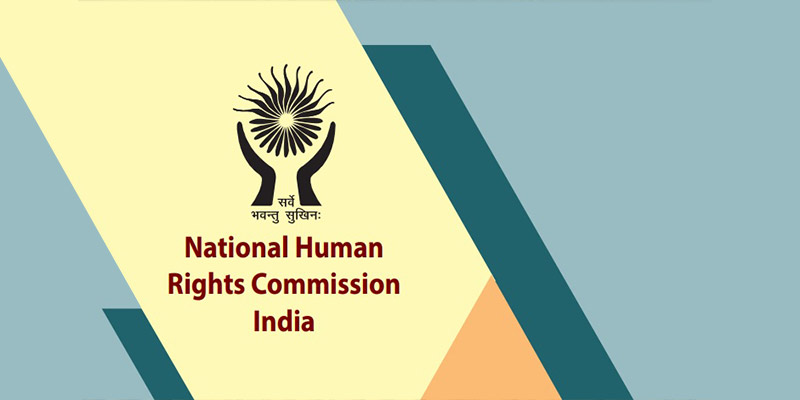- India
- Sep 16
- Kevin Savio Antony
Human rights groups question delay in appointment of NHRC chairperson
• The National Human Rights Commission (NHRC) of India has faced significant operational challenges due to leadership and staffing issues.
• The NHRC chairperson’s position has been vacant since June 1, 2024, following the retirement of former Supreme Court Justice Arun Mishra.
• Currently, Vijayabharathi Sayani, the NHRC’s sole full-time member, is serving as the acting chairperson.
• Human rights groups are warning that the delay in filling these positions could harm India’s global reputation.
• The UN-linked Global Alliance of National Human Rights Institutions (GANHRI) has deferred the NHRC’s accreditation for two consecutive years due to concerns over transparency and inadequate representation on the Commission.
• Amnesty International has criticised the delay in recruitment and appointments as a sign of the government’s lack of political will to address human rights issues and uphold transparency and accountability.
Current Situation:
• The NHRC has been functioning without a full-time chairperson for over three months and has only one-member filling five positions.
• Membership: The Commission should ideally have a chairperson and five full-time members, but currently, it is operating with a single full-time member and seven ex-officio members.
Legal and Administrative Context:
• Eligibility Criteria Change: The Protection of Human Rights Act, 1993 was amended in 2019 to allow any Supreme Court judge, not just retired Chief Justices of India (CJIs), to head the NHRC.
• Historical Delays: There have been repeated delays in appointing NHRC chairpersons in the past, with long gaps between the tenures of previous heads.
Plea in Supreme Court:
• July 2023: The Supreme Court of India began examining a plea accusing the Union government of being lethargic in filling NHRC vacancies.
• July 2024: The Court granted an extension for the government to respond to the plea, with the NHRC currently operating without a chairperson and four out of five full-time members.
Key points on NHRC:
• The National Human Rights Commission (NHRC) was established on October 12, 1993.
• The statute under which it is established is the Protection of Human Rights Act (PHRA), 1993, as amended by the Protection of Human Rights (Amendment) Act, 2006.
• It is in conformity with the Paris Principles, adopted at the first international workshop on national institutions for the promotion and protection of human rights held in Paris in October 1991, and endorsed by the General Assembly of the United Nations by its Regulations 48/134 of December, 20, 1993.
• The NHRC takes cognisance of human rights violations, conducts enquiries and recommends compensation to victims from public authorities besides other remedial and legal measures against the erring public servants.
• The commission consists of a chairperson, five full-time members and four deemed members.
• The statute lays down qualifications for the appointment of the chairperson and members of the commission.
• The NHRC is an embodiment of India’s concern for the promotion and protection of human rights.
• Section 2(1)(d) of the PHRA defines human rights as the rights relating to life, liberty, equality and dignity of the individual guaranteed by the Constitution or embodied in the International Covenants and enforceable by courts in India.
• The Commission is responsible for spreading human rights awareness amongst the masses and encouraging the efforts of all stakeholders in the field of human rights literacy.
Functions of NHRC:
The Commission shall, perform all or any of the following functions, namely:
• Inquire, on its own initiative or on a petition presented to it by a victim or any person on his behalf, into complaint of violation of human rights or abetment or negligence in the prevention of such violation, by a public servant.
• Intervene in any proceeding involving any allegation of violation of human rights pending before a court with the approval of such court.
• Visit, under intimation to the state government, any jail or any other institution under the control of the state government, where persons are detained or lodged for purposes of treatment, reformation or protection to study the living condition of the inmates and make recommendations thereon.
• Review the safeguards by or under the Constitution or any law for the time being in force for the protection of human rights and recommend measures for their effective implementation.
• Review the factors, including acts of terrorism that inhibit the enjoyment of human rights and recommend appropriate remedial measures.
• Study treaties and other international instruments on human rights and make recommendations for their effective implementation.
• Undertake and promote research in the field of human rights.
• Spread human rights literacy among various sections of society and promote awareness of the safeguards available for the protection of these rights through publications, the media, seminars and other available means.
• Encourage the efforts of non-governmental organisations and institutions working in the field of human rights.
• Such other functions as it may be considered necessary for the promotion of human rights.
(The author is a trainer for Civil Services aspirants.)

